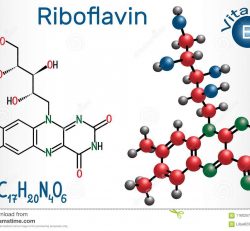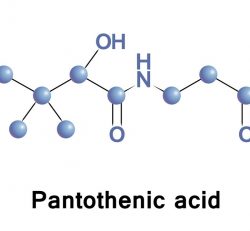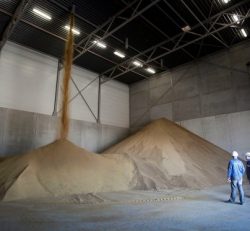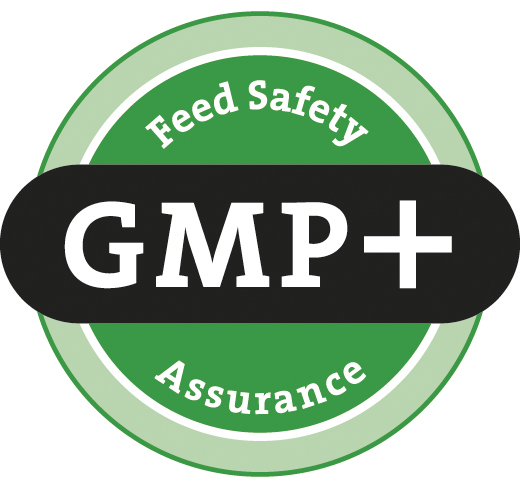THE BEST VENTILATION FOR GROUP-HOUSED SOWS ON STRAW
Pig management expert John Gadd has more often written about airbags – simple solutions to help solve local ventilation problems in pig houses. Now what to do when sows are kept in groups on straw – are airbags still a good solution there?
Airbag ventilation is becoming popular. This is the ‘movable’ and cheaper-to-install version of ‘trunked’ air distribution, which is based on solid, fixed materials. An airbag system on the other hand can have the air inlets quickly and easily altered to place the air exactly where it is needed, especially in hot weather and also when ‘wrong-mucking’ develops.
To remind you, the advantages of any airbag system are:
- It is flexible;
- It can be made on-farm;
- It is cheap;
- It is very easy to install;
- It can be used in most pig buildings.
Provided it is made correctly and installed correctly, it works excellently.
But does it work in straw-based yards?
These are becoming popular too, especially when bedding is available for dry sows – again from the lower cost of housing such groups of dry sows, and gilts. The move away from the dry sow stall on welfare grounds is also encouraging breeders to change to group housing.

Photo: Ronald Hissink
However, in my experience, airbags are less successful over sows on medium to deep bedded group yards and even on the solid-floored ones seen on the continent of Europe. Why is this?
Sows resting in groups
We have long known, based on excellent past research, that the correct amount of air reaching any pig, at the correct speed influenced by the climatic condition and thus at the right temperature over or around the pig, are the components needed to keep it contented, growing to its maximum potential, and encouraging it to eliminate in the correct place.
We need work to confirm the following, but I feel that all these worthy desiderata may be overridden by the social instinct of the sow when resting in an ample yard in groups. Here they seem to rest and sleep in ‘family’ groups – comprised of ‘friends’ or ‘cliques’.
If this postulate is correct, then the correct formation of such contented groups may override any particulate placement of air which an airbag system can supply.
Airbag system can be unnecessary
Of course they need sufficient air, and that it should not be too cold (and of course deep bedding is an excellent palliative in cold conditions), but the use of an airbag system seems unnecessary except in the very hottest weather when a cooler airflow towards the dunging/ scrape through area is helpful to deter them from ‘wetting their beds’ in order to keep cool.
All the same, employing airbags to avoid this doesn’t seem to be the answer. The best systems I have seen, both in Britain’s favoured ‘deep straw yards’ and those on hard floors in Europe and the Far East, are to have large slow-moving fans above the resting area, some farmers having a tilting device to direct the air towards the dunging area when needed. Doing the same with an airbag or airbags did not seem to work.
Is a correct lying area design more important?
I’m sure that is so. Reverting back to the social behaviour aspect, it is most important to provide the right type of lying area for the family groups for bedded sows and a quite different layout for those sleeping (or just resting) on hard floors to that of the same animals on bedding.
For hard-floored groups, the family areas should have dividers between them located down three sides of a ‘U’ shaped yard. Sows in these ‘cubicles’ on the three sides must easily see the source of food and water at the top, open end of the ‘U’.
Ability to see the nutrient supply source
For bedded/ deep strawed sows on the other hand, no dividers are essential and the sows will decide where to rest somewhere in the open space, with the dominant family group choosing the position nearest to the source of food and water. Again, they must all be able to see the nutrient supply source – so no ‘L’ shaped pens please!
With an adequate and generally non-positional air flow over either group, then airbags are superfluous.
John Gadd
Topic: Pig Management
Source: www.pigprogress.net














